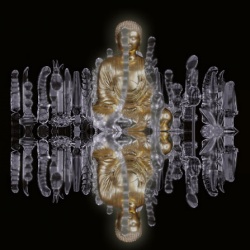Difference between revisions of "10 Major Bodhisattva Precepts"
(Created page with "The Precepts are derived from Mahayana version of the Brahma Net Sutra, which lists out 10 Major Precepts and 48 Minor Precepts a monk is expected to f...") |
|||
| (2 intermediate revisions by 2 users not shown) | |||
| Line 1: | Line 1: | ||
| + | [[File:20v2.jpg|thumb|250px|]] | ||
| + | |||
| + | |||
| + | |||
| + | |||
| + | |||
| + | |||
| + | |||
| + | |||
| + | |||
| + | |||
| + | |||
| + | |||
| + | <poem> | ||
The [[Precepts]] are derived from [[Mahayana]] version of the [[Brahma Net Sutra]], which lists out [[10 Major Precepts]] and [[48 Minor Precepts]] a [[monk]] is expected to follow. Typically, in many [[traditions]], only the [[10 Major Precepts]] are considered the [[Bodhisattva Precepts]]. | The [[Precepts]] are derived from [[Mahayana]] version of the [[Brahma Net Sutra]], which lists out [[10 Major Precepts]] and [[48 Minor Precepts]] a [[monk]] is expected to follow. Typically, in many [[traditions]], only the [[10 Major Precepts]] are considered the [[Bodhisattva Precepts]]. | ||
According to the [[sutra]], the [[10 Major Bodhisattva Precepts]] are in summary: | According to the [[sutra]], the [[10 Major Bodhisattva Precepts]] are in summary: | ||
| − | + | ||
| + | Not to kill or encourage others to kill. | ||
| + | Not to steal or encourage others to steal. | ||
| + | Not to engage in licentious acts or encourage others to do so. A [[monk]] is expected to abstain from {{Wiki|sexual}} conduct entirely. | ||
| + | Not to use false words and {{Wiki|speech}}, or encourage others to do so. | ||
| + | Not to trade or sell [[alcoholic beverages]] or encourage others to do so. | ||
| + | Not to broadcast the [[misdeeds]] or faults of the [[Buddhist]] assembly, nor encourage others to do so. | ||
| + | Not to praise oneself and speak ill of others, or encourage others to do so. Not to be stingy, or encourage others to do so. | ||
| + | Not to harbor [[anger]] or encourage others to be [[angry]]. | ||
| + | Not to speak ill of the [[Buddha]], the [[Dharma]] or the [[Sangha]] (lit. the [[Triple Jewel]])) or encourage others to do so. | ||
| + | |||
Breaking any of these [[precepts]] is described as a major (lit. [[Parajika]]) offense in the [[sutra]]. | Breaking any of these [[precepts]] is described as a major (lit. [[Parajika]]) offense in the [[sutra]]. | ||
| + | </poem> | ||
| + | [[Category:Bodhisattva's]]{{BuddhismbyNumber}} | ||
Latest revision as of 11:59, 29 December 2023
The Precepts are derived from Mahayana version of the Brahma Net Sutra, which lists out 10 Major Precepts and 48 Minor Precepts a monk is expected to follow. Typically, in many traditions, only the 10 Major Precepts are considered the Bodhisattva Precepts.
According to the sutra, the 10 Major Bodhisattva Precepts are in summary:
Not to kill or encourage others to kill.
Not to steal or encourage others to steal.
Not to engage in licentious acts or encourage others to do so. A monk is expected to abstain from sexual conduct entirely.
Not to use false words and speech, or encourage others to do so.
Not to trade or sell alcoholic beverages or encourage others to do so.
Not to broadcast the misdeeds or faults of the Buddhist assembly, nor encourage others to do so.
Not to praise oneself and speak ill of others, or encourage others to do so. Not to be stingy, or encourage others to do so.
Not to harbor anger or encourage others to be angry.
Not to speak ill of the Buddha, the Dharma or the Sangha (lit. the Triple Jewel)) or encourage others to do so.
Breaking any of these precepts is described as a major (lit. Parajika) offense in the sutra.
